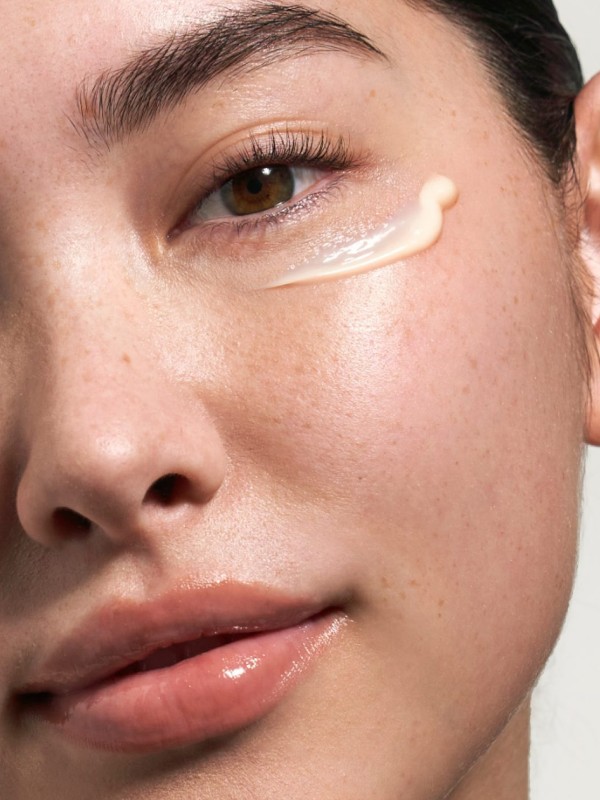Midlife Health Questions Answered By A GP
What are some of the common health issues that arise in midlife?
“Health issues become more prevalent the older we get. Midlife – considered to be from around 45 through to 60 years of age – is when some issues will start to present themselves. These commonly are menopause, sarcopenia (muscle loss) and increased fat mass which leads to increased fatigue and reduced mobility, hypertension (high blood pressure), hypercholesterolaemia (high cholesterol) cardiovascular disease and diabetes. Cancers increase with age and midlife is when cancers like breast, bowel and prostate can start to present. These issues are often driven by our genetics, but they can be influenced by lifestyle choices, with the single biggest factor being regular exercise.”
How often should you be getting a full physical exam?
“Preventative medicine is what we need to focus on in our society, so that reactive medicine for illness and disease that has already presented will become less needed. This means preventing and avoiding the disease processes before they start. Ideally, a full medical should be carried out yearly. Each medical is simply a snapshot at that time of your health and things can change/develop quickly. That said, not every investigation or test need be done annually. For example, mammograms should happen every 18-24 months unless you have an increased risk of breast cancer or a new symptom suggestive of possible breast cancer.”
Are there specific screenings or tests you should be getting on a regular basis?
“Your vitals are blood pressure, pulse, oxygen saturations, ECGs and blood profiles. Alongside a physical examination, these are non-invasive and easy to perform yearly. More invasive exams such as mammograms should happen every 18-24 months and a colonoscopy done at age 50. Bone densitometry – a measurement which shows osteopenia or osteoporosis – can be undertaken every 3-5 years from menopause. Cholesterol should be checked every 2-3 years. Your doctor can guide you on what is appropriate based on your personal risk factors. Having that discussion is important.”
What dietary changes should I consider to maintain good health during midlife?
“Reduce your intake of simple sugars, animal fats and processed meats. Increase your intake of dietary fibre, plant produce, and good fats like olive oils, avocado and oily fish.”
How much exercise do I need to stay healthy and what type is the most beneficial?
“Any exercise at all is beneficial, and it’s never too late to start. Changing from a sedentary lifestyle to an active one will be the single best thing you can do to delay the effects of ageing well into later life. The best exercise is anything you enjoy as you will be more inclined to continue doing it on a regular basis. HIIT training and training to increase your VO2 (maximum amount of oxygen your body can use during exercise) have been respectively shown to increase your fat loss and cardiovascular fitness considerably. Weightlifting is good: starting with low weights, performing three sets of eight repetitions, then building up the weight gradually will encourage muscle fibre development along with increased mitochondrial activity – both of which increase your metabolic activity. The heavier the weights the better. Women especially have shied away from heavy weights, fearful that they will bulk up too much. Using resistance bands is a great alternative to static weightlifting as they provide the weight resistance, and can be packed up and taken anywhere.”
What strategies can help manage stress and improve mental health at this stage of life?
“Stress and mental health are closely linked. Exercise, eating well, mindfulness techniques, good sleep and fostering good relationships in different aspects of your life are all positive in keeping stress levels lower and mental health higher.”
What are the risk factors for chronic diseases such as diabetes, heart disease and osteoporosis in midlife? And how best can I reduce my risk?
“Genetics play their part. If your family history shows certain diseases are prevalent, then your own risk for these diseases is raised. However, we don’t need to be fixed by our genetics, and the lifestyle choices we make can significantly change our risks for certain diseases. Diabetes is a great example of how lifestyle choices determine development and progression. You may have no familial history of the disease yet, due to our modern lifestyles of higher sugar and processed food diets combined with sedentary lifestyles, diabetes can develop. Risk factors are being overweight, high dietary sugar intake and limited exercise. Heart disease is increased in those who have diabetes. Smoking, high blood pressure and high cholesterol, and premature menopause are also important risk factors. Osteoporosis is increased with premature menopause, smoking, lack of weight-bearing impact exercise in younger life (20s, 30s, 40s), low calcium and vitamin D, and certain prescription drugs like high-dose steroids.”
How can I monitor and manage my blood pressure and cholesterol levels effectively?
“There are many reliable and cheap home blood-pressure machines which are easy to use. Blood pressure machines can be used on the wrist or with an arm cuff. Monitoring blood pressure in individuals who are normotensive (normal blood pressure) is really only necessary every 12 months. Your doctor can guide you on frequency, depending on your readings, background health, medications and risk factors. Monitoring for cholesterol requires a blood sample and there are now many companies offering home testing. Full analysis of cholesterol and cardiovascular risk includes total cholesterol, HDL and LDL cholesterol, triglycerides, apolipoproteins B and A1, lipoproteins, LP-PLA2 and CRP. Annual testing is recommended for those with risks, and every 2-3 years for those without background risk factors.”
What are the common symptoms of menopause and andropause?
“The most common menopause symptoms include changes to menstrual cycle pattern, insomnia, anxiety, depression, loss of concentration, emotional changes, headaches, loss of sense of self, pain during sex, palpitations, night sweats, hot-flashes, joint stiffness, hair thinning – the list is quite extensive! Andropause is a bit of a misnomer as it suggests testosterone dropping much like oestrogen and progesterone do for women in menopause. This isn’t the case unless an individual is actually suffering with late-onset testosterone deficiency syndrome (male hypogonadism) and requires replacement testosterone. That said, the symptoms of ‘andropause’ include depression, erectile dysfunction, loss of muscle mass and increased difficulties exercising, reduced libido, mood swings and irritability.”
What options are available for managing hormonal changes?
“There are a few options, including both medicinal and complementary alternatives. Menopause can be an extraordinarily debilitating process and the replacement of hormones like oestrogen, progesterone and testosterone can be transformative. The average life expectancy in the UK is 81 which means that women will live for something like 40 years – half their lives – without the hormones that help us function. HRT has over the last two decades received bad press in relation to perceived increased risk of cardiovascular risk, thrombotic events, endometrial and breast cancer as shown through the Million Women Study and the Women’s Health Initiative Study in 2003/4, but these studies have since been largely discredited. Today, HRT is not generally recommended for women with a history of stroke or deep-vein thrombosis (transdermal may be acceptable), breast cancer or endometrial cancer and severe liver disease. Taking HRT is a personal choice but one which should be discussed with your doctor, allowing women to make an informed decision. Other complementary treatments such as phytoestrogens, evening primrose oil and black cohosh have yet to show from medical studies that they are convincingly helpful. For ‘andropause’, men need to focus on eating a healthy diet that’s high in zinc and vitamin D, increasing exercise (especially with resistance bands or weights), reducing alcohol, stopping smoking and seeking help in managing any underlying stressors.”
How do you recognise the signs of depression or anxiety in midlife? What treatment options are available?
“Often signs of anxiety and depression are noticed by friends or family before you see them in yourself. Anxiety presents with insomnia, agitation, a sense of impending doom or danger, palpitations, sweating, trembling, shaking and nausea. Depression presents with low mood, sleep disturbance, changes in appetite up or down, anhedonia (loss of enjoyment of things), social withdrawal, low self-esteem, feeling bad about oneself, self-harm or suicidal thoughts. The two, more often than not, co-exist. Treatment options are varied, and some will help for some and not others. Examples are self-help forums such as Togetherall, psychotherapy with qualified therapists such as CBT, group or individual therapy with a BACP accredited therapist, and medications like anxiolytics (anti-anxiety) and antidepressants. If you try something and it doesn’t work, try something else. Even a change in therapist can be instrumental in successful outcomes.
How can midlife changes affect sexual health and intimacy?
“Midlife physical changes such as increased fat mass and reduced muscle mass can make one more physically self-aware and less relaxed during sex. Vaginal dryness from oestrogen deficiency through menopause can make sex painful and vaginal tissue become fragile, and more inclined to tear during sex. Lubricants help a great deal, along with HRT. Erectile dysfunction can be an early sign of cardiovascular disease so, aside from the sexual intimacy issues, it is vital any man with ED sees his doctor to be assessed. Societal views on sexual health being relevant and important beyond our childbearing years is changing for the better.”
Are there specific treatments or lifestyle changes that can improve sexual health during midlife?
“Reducing alcohol, stopping smoking and exercise all improve sexual health.”
What steps can I take to maintain or improve cognitive function as I age?
“Contrary to previous belief, recent studies have demonstrated that we produce new brain cells throughout our life. Keeping healthy and physically active helps our brain function too. We need to view our brain as a muscle in its own right, and exercising it keeps it healthy. “
What are the early signs of cognitive decline?
“Age-related cognitive decline is a natural part of ageing and we all become a little forgetful. However, this natural decline does not affect our general functioning and the way we live our life. Nor does it affect the speed at which we think, our long-term memory, or our ability to make decisions. When to be more concerned is if you are showing signs of short-term memory loss, problems planning or organising, finding it difficult to find the right words, or confusion about time and place.”
How can I improve my sleep quality?
“Sleep quality is linked to lifestyle, so anything causing stress and anxiety will negatively affect your sleep. Alcohol is a major player in sleep disruption. Although we all think we fall fast asleep after a few glasses of wine, what is actually happening is that the REM part of sleep is reduced. REM sleep is the deepest part of sleep and most restorative so, if you want better sleep, avoid alcohol. Generally, sleep hygiene is crucial for good sleep, so build a routine of winding down before sleep, like having a bath or reading. Keep devices out of the bedroom so it is a haven for intimacy and sleep only.
Do you know any good ways for balancing work and personal life?
“A good work-personal life balance is what I think everyone is striving for. It’s very tricky to achieve and I don’t really believe anyone can get it right all of the time. Life will often cycle between times when work is overbalanced and the personal side is neglected, and vice versa. The balance is a very personal judgement and, ultimately, the test is as long as you or others are not being negatively impacted by however you commit your time, then all well and good. Life does throw curveballs and things can be unavoidable. Going with it is sometimes all we can do until that time passes and the next chapter starts. At times of change, like starting a new career or beginning retirement, there will be a natural shift in balance where work or personal time is more focused. The adjustment to the change is what’s important – recognising signs of stress from that imbalance and putting in place changes to ameliorate that.”
What strategies are best for staying mentally and physically active, especially in retirement?
“Retirement can bring complex emotions, from the perception of losing your role in life, to knowing how to fill your time, to even not being sure how you will manage being around your partner more of the time. Finding strategies to stay mentally and physically active help, including taking up a new activity or sport like Pilates, swimming or golf. Physical exercise actually exercises your brain as well as your body. Do anything you love and stay connected to others – keeping meaningful relationships is incredibly important.
Any other key things to note around midlife health?
“I think the biggest misconception people have about midlife is that it is a bit of a foregone conclusion, and they will address whatever is wrong when it happens. We need to make the cognitive switch to thinking about investing in ourselves. Much like any other investment, start now to reap the benefits when you’re older. The phrase ‘midlife’ can generate negative connotations for some, but these can be some of the best decades of our lives.”
To Book In With Dr Gill, Visit DrGOstrowski.com & Follow @DrGill_Ostrowski On Instagram.
DISCLAIMER: Features published by SheerLuxe are not intended to treat, diagnose, cure or prevent any disease. Always seek the advice of your GP or another qualified healthcare provider for any questions you have regarding a medical condition
DISCLAIMER: We endeavour to always credit the correct original source of every image we use. If you think a credit may be incorrect, please contact us at info@sheerluxe.com.






